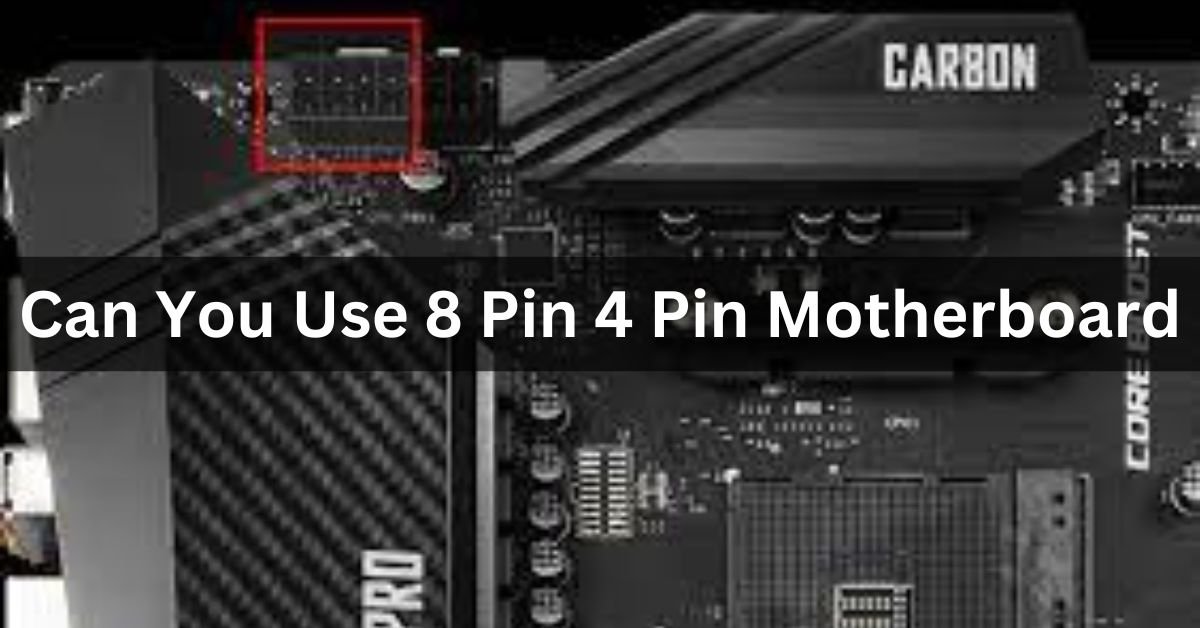Motherboards serve as the backbone of a computer, connecting various components like the CPU, RAM, GPU, and storage devices. They come in different sizes and configurations to accommodate diverse computing needs.
Yes, you can use an 8-pin CPU power connector on a 4-pin motherboard. Just plug in the 8-pin connector, leaving the 4 extra pins hanging, and it should work fine.
In this article, we will discuss “Can You Use 8 Pin 4 Pin Motherboard”.
Understanding Motherboard Connectors:
Motherboards feature various connectors for power delivery, data transfer, and peripheral connectivity. Among these, the 8-pin and 4-pin connectors play crucial roles in supplying power to the CPU and other components.
Compatibility of 8-pin and 4-pin Motherboard Connectors:
Many modern motherboards come equipped with either 8-pin or 4-pin CPU power connectors, while some high-end models feature both. The primary function of these connectors is to provide stable power to the CPU, ensuring optimal performance and reliability.
Read: Are All Motherboards The Same Size – Ultimate Guide – 2024
Can you use an 8-pin connector on a 4-pin motherboard?
Using an 8-pin connector on a 4-pin motherboard isn’t feasible without adapters or converters. The connectors have different pin configurations, and attempting to force an 8-pin connector into a 4-pin socket can result in damage to the motherboard or other components.
Read: Do Motherboards Come With Screws – Ultimate Guide – 2024
Can you use a 4-pin connector on an 8-pin motherboard?
While it’s technically possible to connect a 4-pin connector to an 8-pin motherboard, it may not provide sufficient power for high-performance CPUs or overclocking.
The additional pins in the 8-pin connector are designed to handle increased power demands, especially in high-end systems.
Read: New Motherboard Wifi Not Working – Ultimate Guide – 2024
Power Supply Units (PSUs) and Motherboard Connectors:
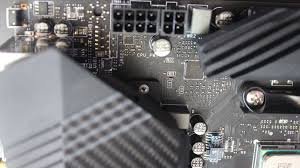
The compatibility between motherboard connectors and power supply units (PSUs) is crucial for system stability and performance. PSUs should have the necessary connectors to match the motherboard’s requirements, ensuring reliable power delivery to all components.
Read: Do Motherboards Come With Bluetooth – Complete Guide – 2024!
Risks and Considerations:
Using incompatible connectors poses significant risks to the system’s integrity. Attempting to force connectors into mismatched sockets can result in short circuits, component damage, or even complete system failure.
It’s essential to understand the compatibility requirements before making any changes to the system configuration.
Read: Is All Ram Compatible With All Motherboards – Complete Guide
Solutions and Workarounds:
If faced with incompatible connectors, users can explore alternative solutions such as adapters or upgrading the PSU to one that matches the motherboard’s specifications.
Adapters and converters are available in the market to facilitate compatibility between different connector types.
read: What Graphics Cards Are Compatible With My Motherboard – Complete Guide!
Factors to Consider Before Making Changes:
Before attempting to modify the system configuration, users should consider factors such as warranty implications, potential risks, and the necessity of the upgrade.
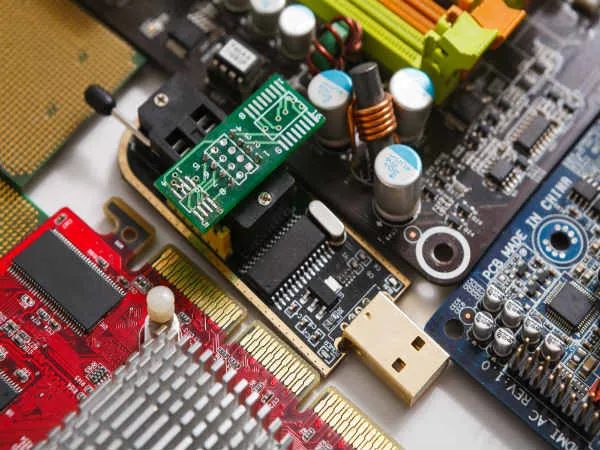
Consulting with experienced professionals or referring to manufacturer guidelines can provide valuable insights into the best course of action.
Read: Can Motherboards Bottleneck – The Ultimate Guide of 2024!
Step-by-Step Guide for Safe Implementation:
For users considering upgrades or modifications involving motherboard connectors, following a step-by-step guide can help ensure a safe and successful implementation process.
This includes proper handling of components, thorough testing procedures, and adherence to safety protocols.
Testing and Verification Process:
After making changes to the system configuration, it’s essential to conduct thorough testing and verification to confirm stability and compatibility.
Running diagnostic tools and stress tests can help identify any potential issues or performance bottlenecks before they escalate into major problems.
How to: Connect a PSU to a 4-pin CPU port.
To connect a PSU to a 4-pin CPU port, align the 4-pin connector from the PSU with the 4-pin port on the motherboard. Insert it gently and ensure a secure fit.
Can I use 8 pin connector on 4 pin motherboard?
Yes, you can use an 8-pin connector on a 4-pin motherboard. Just make sure to align it correctly so only 4 pins are connected, leaving the other 4 hanging.
What is the difference between 4 pin and 8 pin motherboard?
The main difference between a 4-pin and an 8-pin motherboard connector is power. An 8-pin connector provides more power to the CPU, which is important for high-performance systems. A 4-pin connector supplies less power, suitable for basic systems.
Do I need to connect both ATX 12V 8 pin and 4 pin?
You usually only need to connect the ATX 12V 8-pin for most setups. The 4-pin is extra and only necessary for very powerful systems. Check your motherboard manual to see what’s needed for your computer.
Do I need the 4 pin ATX?
Most computers only need the 8-pin ATX power connector. The 4-pin ATX is usually extra and is only needed for very high-power systems. Check your motherboard’s manual to see if the 4-pin is required.
8 pin female to 4 pin male cpu adapter?
An 8-pin female to 4-pin male CPU adapter lets you connect an 8-pin power cable to a 4-pin CPU socket. This can help if your power supply has only an 8-pin connector but your motherboard needs a 4-pin.
4-pin to 8-pin motherboard power plug adapter?
A 4-pin to 8-pin motherboard power plug adapter allows you to connect a 4-pin power supply cable to an 8-pin CPU power socket on the motherboard. This helps if your power supply lacks an 8-pin connector.
Do you need both 8 pin and 4 pin cpu power?
Most computers only need the 8-pin CPU power connector. The 4-pin connector is extra and needed only for high-power systems. Check your motherboard manual to see if you need both 8-pin and 4-pin connectors.
ATX power supply 4 pin vs 8 pin?
An ATX power supply with an 8-pin connector provides more power than a 4-pin connector. Use the 8-pin for high-performance systems. The 4-pin is sufficient for less demanding setups. Check your motherboard manual for the required connector.
Read: Are Gigabyte Motherboards Good – Ultimate Guide – 2024
Using 4-Pin Cpu Connector Into Mobo 8-Pin?
No, using a 4-pin CPU connector in an 8-pin motherboard slot is not recommended. The mismatch in pin configuration may lead to insufficient power delivery and could cause system instability.
Read: Should I Connect HDMI to GPU or Motherboard – Complete Guide!
Mobo has 4-pin 12V connector, but PSU has 8-pin. What Can I Do?
If your motherboard has a 4-pin 12V connector but your PSU has an 8-pin connector, you can use just half of the PSU’s connector. Simply split it in half and use only four of the pins.
Read: Can Old Motherboard Support New GPU – Ultimate Guide – 2024
Do I need both the 8-pin and 4-pin cpu power plug for my MSI B450 Pro Carbon?
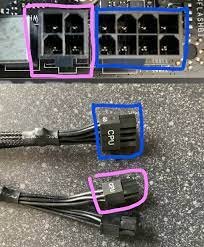
No, you don’t need both the 8-pin and 4-pin CPU power plugs for your MSI B450 Pro Carbon. Typically, using one of them provides sufficient power for the CPU.
Is it okay to put an 8-pin CPU connector in a 4-pin slot?
No, it’s not okay to put an 8-pin CPU connector in a 4-pin slot. The slot’s design may not support the extra pins, risking damage to both the connector and motherboard.
Motherboard has 8pin+4pin CPU connectors but PSU has only 4+4pin?
If your motherboard has both 8-pin and 4-pin CPU connectors but your PSU only has a 4+4pin connector, use the 4+4pin connector. It provides adequate power for most CPUs and systems.
Can I plug 8-pin to 4-pin motherboard?
No, you generally cannot plug an 8-pin connector into a 4-pin motherboard. They have different designs and pin configurations, and attempting to do so may damage your components.
Is 4-pin CPU connector necessary?
Yes, the 4-pin CPU connector is necessary for providing power to the CPU. It ensures stable operation and prevents system instability, particularly in older motherboards and lower-power CPUs.
Do I need to plug in both 8-pin connectors to Motherboard?
Yes, if your motherboard and CPU support dual 8-pin connectors, it’s recommended to plug in both for optimal power delivery, especially for high-performance systems and overclocking purposes.
Do I need to connect ATX 12V 4-pin?
Yes, it’s advisable to connect the ATX 12V 4-pin power connector, especially for older motherboards and lower-power CPUs. It ensures stable power delivery for proper system functionality.
Do You Need Both 8-Pin And 4-Pin CPU Power?
Yes, you usually need both the 8-pin and 4-pin CPU power connectors for high-performance CPUs. They provide stable power delivery for smooth operation and prevent system instability.
How To Connect 4-Pin To 8-Pin Motherboard?
To connect a 4-pin to an 8-pin motherboard, you’ll need an adapter cable that splits the 4-pin connector into two sections. Ensure proper alignment and connection for stable power delivery.
Motherboard Has An Additional 8-Pin EPS Power Connector?
If your motherboard has an additional 8-pin EPS power connector, it’s for supplying extra power to support high-performance CPUs or overclocking. Ensure your power supply can accommodate it for stable operation.
How To Split 8 Pin CPU Connector?
To split an 8-pin CPU connector, gently separate the connector into two 4-pin sections. Match the pins carefully to ensure proper alignment and avoid damaging the connector.
8-Pin Motherboard Connector?
The 8-pin motherboard connector provides power to the motherboard, supporting stable operation. Ensure your power supply has the corresponding 8-pin cable for proper functionality.
ATX12v 4-Pin 8-Pin?
ATX 12V 4-pin and 8-pin connectors supply power to the CPU on the motherboard. The 8-pin connector offers more power delivery for high-performance CPUs, while the 4-pin is sufficient for many processors.
Question About 8-Pin And 4-Pin CPU Power Connectors On Motherboard?
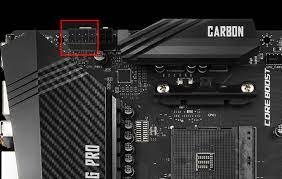
The 8-pin and 4-pin CPU power connectors on a motherboard supply power to the CPU. The 8-pin connector provides more power for high-performance CPUs, while the 4-pin connector is sufficient for many processors.
FAQs:
1. How safe can hydrogen cars be compared to electric cars?
Hydrogen cars can be safe like electric cars. Both have different safety considerations. Hydrogen cars face challenges like hydrogen storage and infrastructure, while electric cars have concerns about battery safety.
2. Is there a case where you should only plug 4 out of the 8 pins for CPU power?
Yes, some CPUs and motherboards only require 4 pins for CPU power. Check your motherboard and CPU specifications to determine if you need to use all 8 pins.
3. Does it matter what 8 pin I use for my CPU power connector?
Yes, it matters which 8-pin connector you use for your CPU power. Ensure you use the dedicated CPU power connector labeled for the CPU on your motherboard to avoid potential damage.
4. My PSU has a 4+4 pin for the GPU but I have no pins for the CPU which needs 4. My GPU RTX 2070 needs all 8 pins. What should I do?
You can use the 4+4 pin connector meant for the GPU to power the CPU by separating the 4+4 connector. Then, use an adapter or cable to connect the remaining pins for the GPU.
5. Will my Ryzen 3 2200G work with a 4-pin power connector if the Mobo has 8 pins? Should I get an adaptor cable?
Yes, your Ryzen 3 2200G will work with a 4-pin power connector on the motherboard’s 8-pin slot. No adapter cable is needed; the 4-pin connector should suffice.
6. What happens if an 8-pin EPS 12V connector is plugged into the PCIe port on a GPU?
If an 8-pin EPS 12V connector is plugged into the PCIe port on a GPU, it can cause damage due to incompatible power delivery. Always use the correct connectors for each component.
7. What is the result of using a 3-pin fan connector on a 4-pin header on the motherboard?
Using a 3-pin fan connector on a 4-pin header may result in reduced functionality. The fan will still work, but features like PWM control may not be available.
8. Can you use an 8-pin CPU cable for a GPU?
Yes, you can use an 8-pin CPU cable for a GPU if your PSU has only 1 x 8-pin connector. Ensure compatibility and proper power delivery before connecting.
9. Do I need 2×8 pin EPS on my motherboard? My PSU has 1 x 8 pin?
Your motherboard needs 2×8 pin EPS power connections, but your PSU only has 1×8 pin. You may need to upgrade your PSU to ensure compatibility and proper power supply.
10. Will a 4-pin PSU work on a motherboard that has a 8-pin connection or will I need to buy a new PSU?
No, a 4-pin PSU won’t work on a motherboard with an 8-pin connection. You’ll need to buy a new PSU that matches the motherboard’s requirements.
Conclusion:
In conclusion, when it comes to using an 8-pin or 4-pin CPU power connector on a motherboard, it’s crucial to understand compatibility and potential risks. Attempting to force incompatible connectors can lead to damage or system failure. It’s advisable to use adapters or upgrade the power supply unit to ensure proper power delivery and system stability. Always consult manufacturer guidelines and consider safety measures before making any changes to your system configuration.
